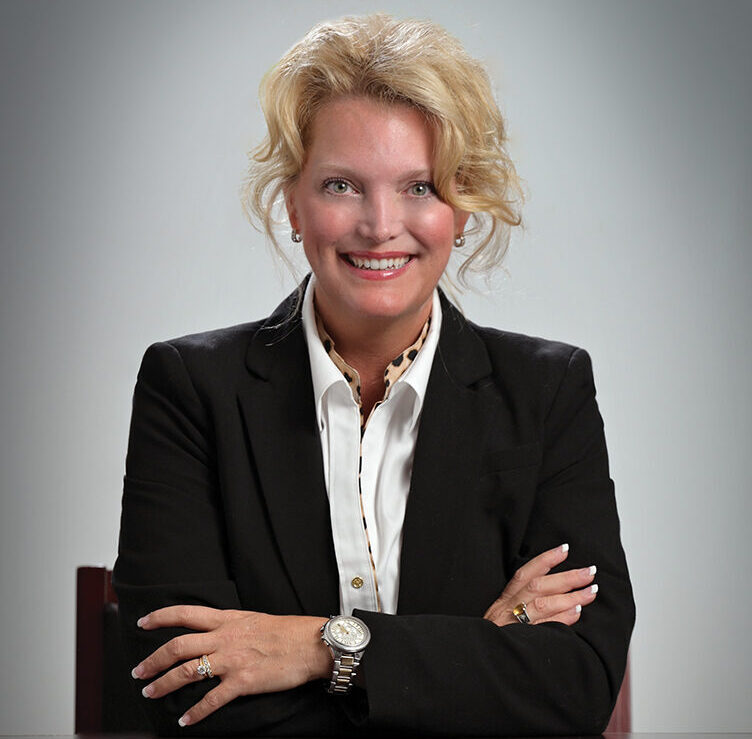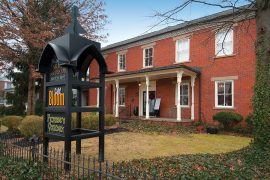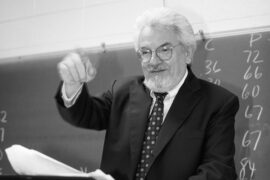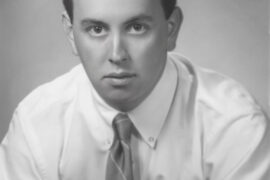Marshall Health CEO Beth “Buffy” Hammers leads one of West Virginia’s largest companies while paving the way for the next generation of women leaders.
By Jack Houvouras
HQ 116 | WINTER 2022
When it comes to facing challenges, Beth Hammers has always met them head on. Over her 30-year career, she rose to the top of a profession traditionally dominated by men through hard work and perseverance, as well as the guidance of several mentors. She even dealt with stereotypes associated with her nickname while ascending the corporate ladder.
“Early in my career people advised me to change my name to Beth because it sounded more professional,” Hammers recalled. “At first it concerned me, but over time I became more comfortable in my own skin. I then told people, ‘You can call me Buffy or Beth, whichever you like.’ In the end, I just wanted them to respect me for my work.”
Today, Hammers oversees the operations of the 24th-largest private employer in the state of West Virginia. She serves as both the CEO of Marshall Health and chief administrative officer of the Marshall University Joan C. Edwards School of Medicine. Together the two entities employ 1,900 physicians and staff in our region. She sits on half a dozen boards and mentors other young professionals, all while fulfilling her role as a wife and mother for the last 26 years. So, don’t let her nickname fool you. Hammers is the real deal.
Born Beth Lynn Hunt, she was given the nickname “Buffy” by her sister based on a character on the TV show Family Affair. Growing up in Ironton, Ohio, she was a majorette and drum major for the Ironton High School Fighting Tigers. When it came time for college, she chose nearby Marshall University where she was a majorette with The Marching Thunder. She also worked a couple of part-time jobs to earn extra spending money, including a bartending position at Tavern Off The Green.
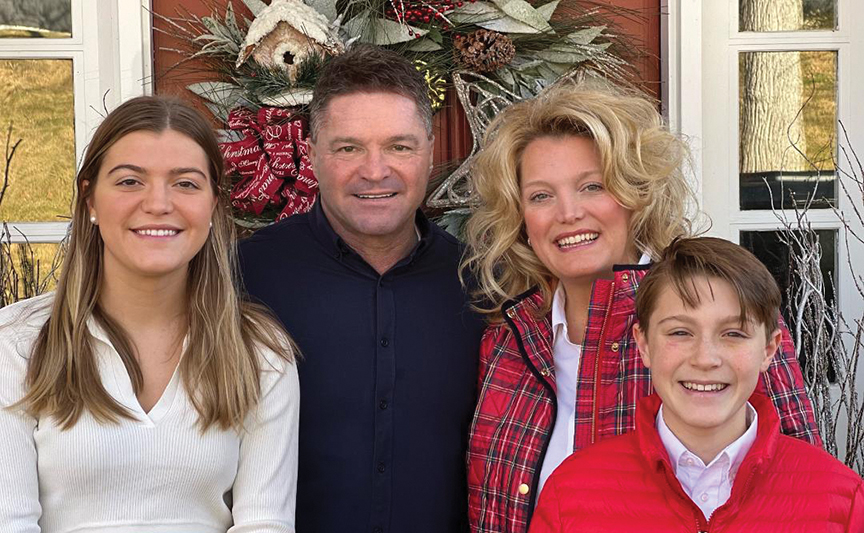
In 1991, she earned her B.A. in business administration with an emphasis in management and marketing. After graduating, she continued working part time while contemplating whether to seek a full-time job or pursue her master’s degree. As fate would have it, her bartending gig would prove to be fortuitous. It was at Tavern Off The Green that she first met Dr. Charles McKown, then dean of Marshall’s School of Medicine. McKown advised Hammers to continue her education, and then offered her a job as a graduate assistant.
“I could see she possessed a great deal of potential,” said McKown, now vice president for Health Science Advancement at Marshall. “Even in her part-time job, she was a dedicated worker. Everything she did, she did well. Buffy’s success today as the CEO of Marshall Health isn’t surprising. She is very intelligent and very honest. Her position demands that she oversee a medical group and a medical school, and she has done both exceptionally well.”
Hammers accepted McKown’s offer, went on to earn her MBA in 1993 and was once again faced with the decision of what to do next. She was considering a position in pharmaceutical sales when McKown offered her a piece of advice.
“You need to think long and hard about entering the pharma industry,” McKown told her. “To them, you’re just a number. Here, we care about you; and you can make a difference.”
Hammers followed McKown’s guidance and stayed on with the medical school, this time as the director of administrative services. It was around this time that she met Sean “Corky” Hammers, a recent law school graduate who was studying for the bar exam. Today, Corky is well known as the prosecuting attorney for Cabell County. The couple would later marry and have two children — a daughter, Gabrielle, who goes by “Gabby,” and son, Brodrick, who goes by “Brody.”
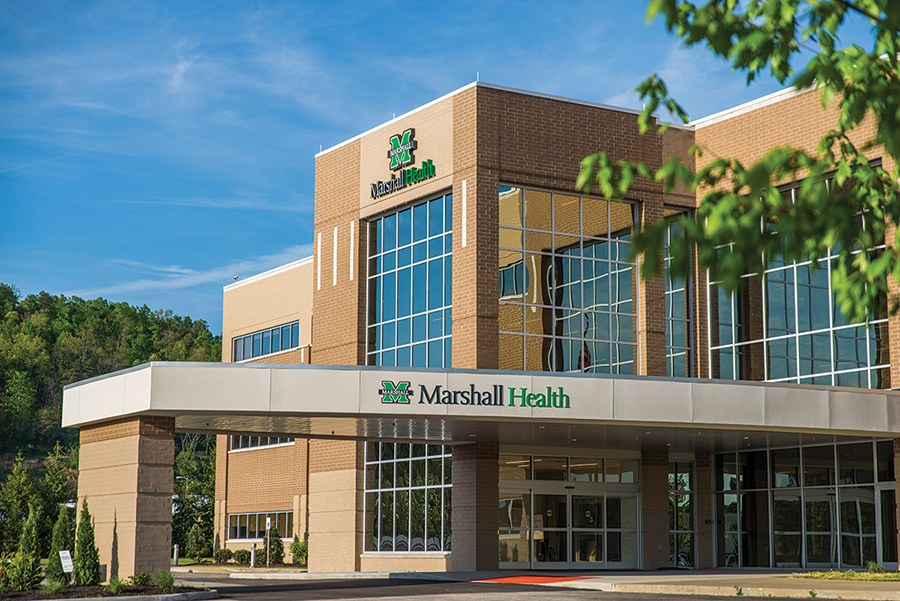
“We like to joke that we are the family of nicknames,” Hammers said.
In addition to her work with the medical school, in 1996 Hammers began assisting Jim Schneider, the CEO of University Physicians and Surgeons. Her first big assignment involved the planning and construction of the Marshall University Medical Center. She was then asked to assist on other major projects, including the design and construction of the Edwards Comprehensive Cancer Center at Cabell Huntington Hospital and the Erma Ora Byrd Clinical Center at the site of the old Fairfield Stadium. Hammers also worked with Dr. Gretchen Oley, who served as both a mentor and the organization’s chief medical officer, on implementing the region’s first electronic medical records system.
What followed was a series of promotions including being named director of compliance and risk management and chief operating officer. Then, in 2011, Hammers was asked to lead the organization following Schneider’s retirement. At first, she was hesitant.
“I wrestled with the decision because I knew it would mean a big change, both personally and professionally,” Hammers recalled. “After much reflection and discussing it with my family, I ultimately decided to accept the position. I was so grateful for the opportunity.”
On Nov. 1, 2011, Hammers was named the CEO of University Physicians and Surgeons. She was just 42 years old.
One of her first orders of business was to oversee a major rebranding of the organization.
Under her leadership, the brand became known as Marshall Health, a designation more in keeping with its ties to both the medical school and the university.
“We have worked hard over the last 10 years to establish the Marshall Health brand as a household name that patients can trust,” Hammers explained. “More than that, we want our community to have confidence in the fact that when they see a Marshall Health provider, they are receiving the best care possible from an organization that is genuinely concerned about their well-being.”

Also during her first year she was tasked with conducting a nationwide search for a new dean of the medical school. She and the search committee tapped Dr. Joseph Shapiro, who has spearheaded growth in every facet of the medical school since his arrival at Marshall in 2012.
“Buffy Hammers is brilliant, hardworking and completely altruistic,” Shapiro said. “What distinguishes her from others is that she has never had a personal agenda. All she cares about is working for the good of the medical school. I can’t imagine where the School of Medicine or Marshall Health would be today without her.”
Marshall’s medical school is a community-based medical school that doesn’t own its own hospital and instead collaborates with dozens of hospitals. Establishing an academic medical center with Cabell Huntington Hospital in 2012 was a pivotal point for both the medical school and Marshall Health, opening the door for enhanced education, research and community health in a way that benefits the entire region.
Other accomplishments under Hammers’ tenure as CEO include establishing Marshall Pharmacy, which currently has three locations and is the region’s only 24/7 pharmacy; the purchase of the historic Douglass Centre, home to Ebenezer Medical Outreach and administrative offices for Marshall Health; the transformation of the former Patriot Coal Building in Scott Depot into Marshall Health-Teays Valley; and the construction of a parking garage along 15th Street that provides 706 new parking spaces for the health sciences campus, which is composed of Cabell Huntington Hospital, the School of Medicine and the School of Pharmacy.
“I like that I get to wear a variety of hats — architect, engineer, accountant,” Hammers noted.
“I also love working with so many intelligent, innovative people who are committed to making a difference in our community. Early on, one of my mentors told me not to be afraid to surround myself with people smarter than me and then to let them do their jobs. Our department chairs and executive team have worked hard to fulfill our mission of building a healthier tomorrow.”
Hammers also faced the challenge of contending with a national opioid epidemic during her time as CEO. She worked closely with Dr. Stephen Petrany, professor and chair of Family and Community Health, to combat the health care threat. Marshall Health and the School of Medicine joined a number of other community health care partners to establish PROACT, an outpatient center that provides comprehensive care for substance use disorder. Marshall Health also opened Project Hope for Women and Children, as well as Hope House, which provides transitional housing for women and their children as they complete their recovery program at Project Hope and find permanent work and housing.
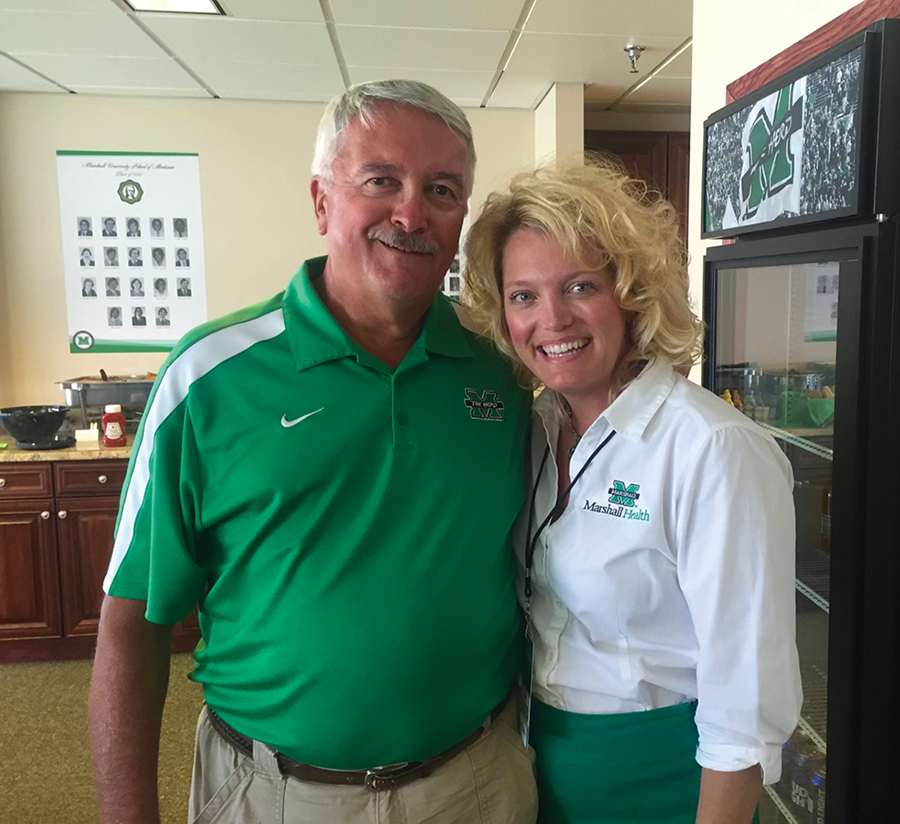
“As a mother, being part of these efforts has been incredibly rewarding for me on a personal level,” Hammers said. “I am proud of the work Marshall Health and the medical school have done in fighting the opioid epidemic.”
In addition to her role as CEO of Marshall Health, for the last 10 years Hammers has been a member of the board of directors for both Cabell Huntington Hospital and Mountain Health Network. From 2019-2021 she served as chairman of both boards. During that time, Cabell Huntington Hospital acquired St. Mary’s Medical Center and Dr. Kevin Yingling was appointed president and CEO of Mountain Health Network.
“We have seen a lot of positive change recently with our two major hospitals working together. But the last two years have also been stressful on the health care system with the COVID-19 pandemic,” Hammers explained. “Our physicians and staff have been resilient throughout the pandemic. I’m in awe of our front-line health care workers who are heroes in every sense of the word.”
Despite the challenges of the last two years, Marshall Health continues to grow, adapt and innovate. At the onset of the COVID-19 pandemic, Hammers worked with Dr. Larry Dial to implement a massive telehealth network in the region that should serve patients well for years to come. And last summer, Cabell Huntington Hospital and Marshall Health broke ground on a new $51 million, five-story medical office building that will accommodate the need for more clinical space.
Under Hammers’ stewardship Marshall Health has grown exponentially in the last 10 years. A workforce of 800 in 2012 now stands at 1,700. A company valued at $137 million is today worth $305 million. And an organization with just 18 locations in 2012 now boasts 43 outpatient locations in three states. All that growth equates to twice the opportunities for patient care close to home.
“Buffy Hammers is the complete package,” noted former mentor Jim Schneider. “She’s smart, well-educated and committed to the organizations she serves. She cares about the people she works with, but she can be tough when it’s necessary. It’s no surprise to me that she’s continued to expand her leadership role through the joint hospital enterprise and the many new health care facilities and initiatives. And Buffy has accomplished all of this in a traditionally male-dominated environment that was not always very welcoming. Young women today, or men for that matter, who are looking for an outstanding role model would do well to spend some time with her.”
Hammers takes her role as a female civic leader seriously. She volunteers her time with the Lewis College of Business and mentors other professionals through the John Marshall Leadership Fellows Program.
“I think the role of a leader is to motivate, inspire and bring out the best in people. When I started my career most of my mentors were men because there weren’t many women in leadership positions at the time,” Hammers said. “I’d like to make things better for women coming up behind me. If I see potential in a female, I want to help her succeed. We’ve made great strides promoting women to leadership positions in health care, but there is always room for improvement.”
As parents, Hammers said, she and Corky have raised their daughter, Gabby, a junior at the University of Kentucky, and son, Brody, a student at Barboursville Middle School, to be strong-minded, independent individuals.
“I taught Gabby that she can do anything she sets her mind to. Today she’s blazing her own pathway. Sometimes I think I went a little overboard with her,” Hammers said with a smile.
“And maybe that’s because there were times in the past when I wasn’t taken seriously, or times when I was underestimated. But I chose to use those situations to find my own voice. While I can’t control how another person acts, I can control how I respond.”
When Hammers speaks to student groups, she shares the following advice: find a mentor; show up and be present; no job is beneath you; to succeed you must be willing to fail; find balance in your life; choose your battles carefully; and don’t take yourself too seriously.
Hammers, who balances a heavy workload, civic obligations and the responsibilities of being a wife and mother, admitted that finding balance isn’t always easy.
“It really does take a village to raise a family,” she said. “I am so thankful to my husband and our parents for their support. Burnout is a reality. I make it a point to do self-reflections twice a year and always emerge reenergized.”
Entering 2022, Hammers is confident in what the future holds for Marshall Health but said there are still obstacles to overcome.
“One of our biggest challenges is the recruitment and retention of health care professionals — doctors, nurses, technicians and support staff,” she noted. “They are the catalyst for bringing health care services to our communities, and the shortage of these skilled professions is felt nationwide.”
Looking ahead, Hammers is optimistic about the next 10 years. The long-term goal of Marshall Health is to make Huntington a regional health care destination for people in southern West Virginia, eastern Kentucky and southern Ohio, and to continue educating the next generation of physicians.
“Access to health care is essential. We want patients to have options close to home so they don’t have to travel elsewhere for expert care,” Hammers asserted.
As for the future of Huntington, Hammers is equally enthused about its potential.
“I’m excited about the transformation taking place at Marshall University with the new president and his wife,” Hammers said. “I can only imagine what Huntington and our health sciences campus will look like in 10 years with the combined synergies of the university, the School of Medicine, Marshall Health and Mountain Health Network. I believe the stage is set for this region to undergo a true renaissance.”

